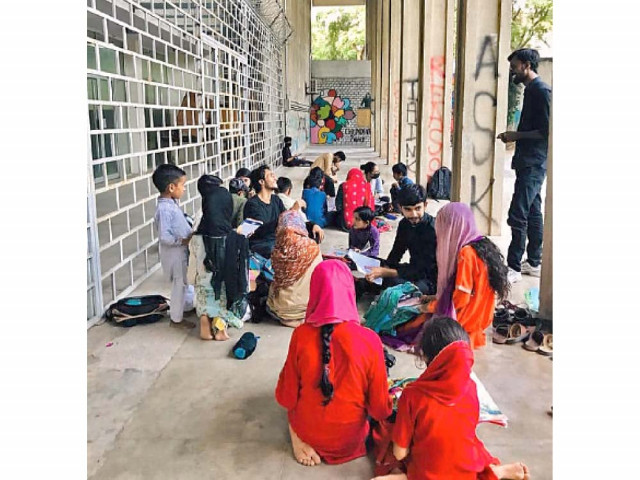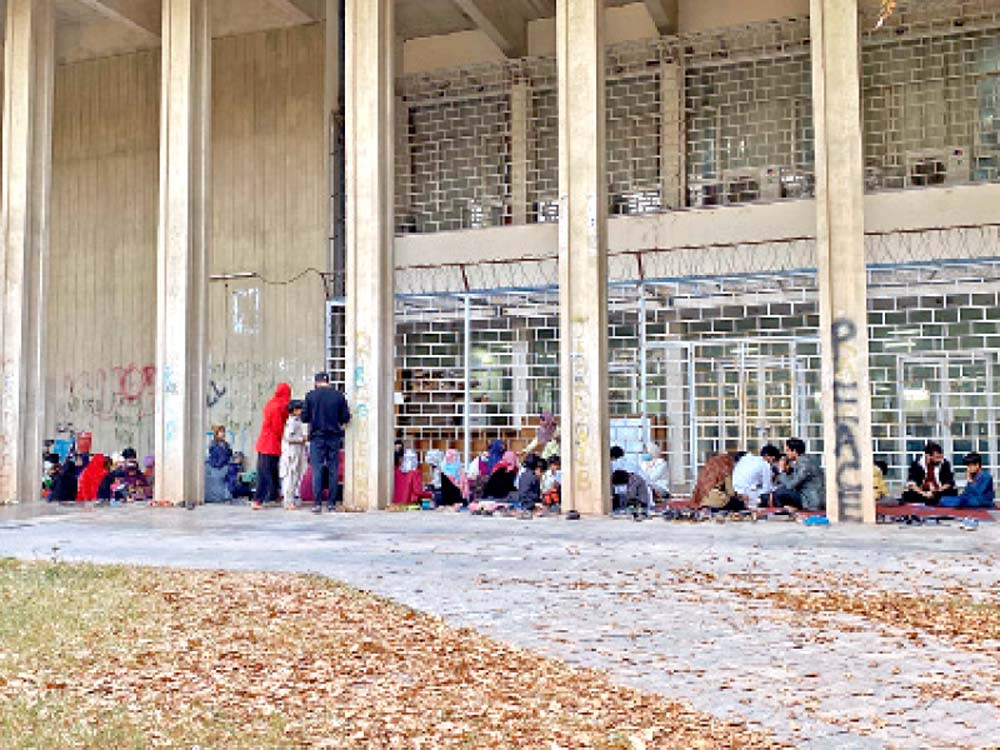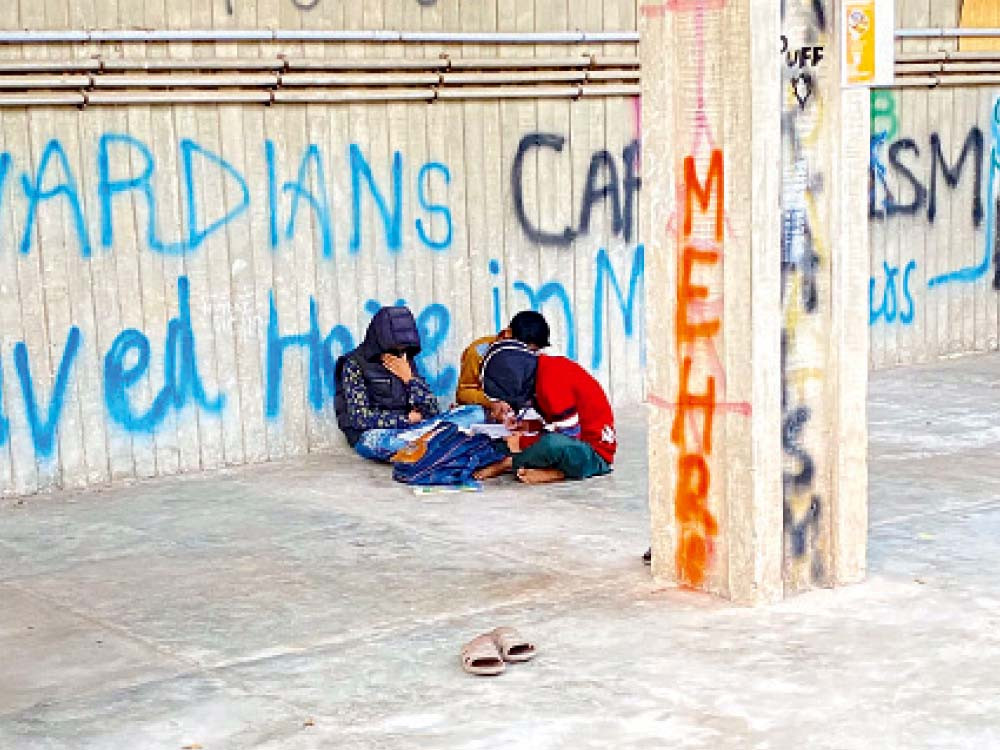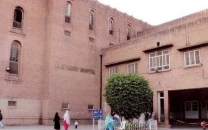‘Quaidian Tutors’ — a hope for destitute children
Student-led initiative imparts quality education to children of lower income groups

Sequestered in a corner of the Central Library at Quaid-e-Azam University (QAU) Islamabad is a makeshift, open-air school for out-of-school children.
The ‘Quaidian Tutors’ is a student-run initiative that came into existence a little over two months ago.
Every weekday, youngsters from lower socioeconomic groups, including those involved in odd jobs on campus, rush to class to absorb valuable lessons in reading, writing, and analytical thinking. Over 30 volunteers manage the day-to-day administration of the project, which include personalised lesson plans for almost one hundred children.
Leading them are university students Amna Nasir and Rehan Yousafzai, who constitute the core management team, and are largely responsible for the project’s overwhelming success. Between 4pm and 6pm, they can be seen pacing the length and breadth of the establishment – making sure the individual needs of each child are catered to.

Children revise their daily lessons while others sit with their instructors at a student-led tutoring service at Quaid-e-Azam University, Islamabad. PHOTOS: EXPRESS
Speaking to The Express Tribune, Amna said, “I’ve always been passionate about education, and I’ve always had someone to teach. Inspired by my belief in learning, a university staff member requested that I teach his daughters. One thing led to another and a few months down the line, that request culminated in to this – a free-of-cost school for the most destitute in the city.”
She revealed that the children come from some of the poorest communities in the capital. “They travel several miles every day, in search of a brighter future. Most are extremely intelligent, and some are overwhelmingly creative. They excel at everything – from writing and mathematics to drawing and sketching.”
Amna said the project started with a handful of students, but enrolment grew exponentially in just a matter of weeks. She attributed its successes to assistance from university administration and the QAU Alumni Network.
“They helped us build this modest setup by providing us with valuable resources,” she added. She also hoped that after she and Yousafzai graduated, they could leave behind a tangible centre of learning.

Simultaneously, while she was grateful for the initiative, she also lamented over the gross inequalities plaguing the youth of the country. “These children have so much potential and they are excited to learn, but they lacked the essential tools required to turn their natural talent into future prospects prior to this initiative.”
She revealed that Islamabad in particular housed innumerable individuals with obvious potential, but little to no opportunities.
Suburbanisation in Islamabad
“I often feel that through Quadian Tutors, I’m also addressing the grievances of children belonging to lower socio-economic groups,” said Amna. “Upscale sectors pepper the heart of the capital, while its fringes overflow with illegal housing,” she added.
She regretted that this polarisation often led to ghastly outcomes: suburbanisation, increasing crime rates, and an eventual disintegration of civil society. She hoped that addressing the root cause of the issue will have overarching benefits for the city’s population.
Education in Pakistan
“It often baffles me how universities have music and drama societies, but no education society on campus,” said Amna. “For me, that represents a microcosm of a larger problem in the country: the low levels of literacy and what is being done about it,” she added.
A troublesome one-third of them are out of school. Concluding the discussion, she said, “Imagine what we could achieve if these youngsters achieved some level of basic education.”
Published in The Express Tribune, December 14th, 2021.



















COMMENTS
Comments are moderated and generally will be posted if they are on-topic and not abusive.
For more information, please see our Comments FAQ